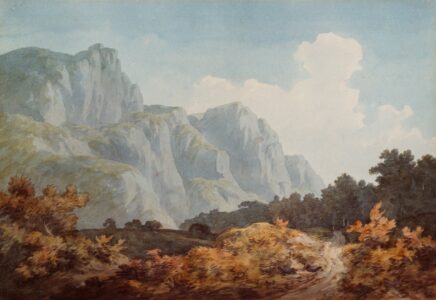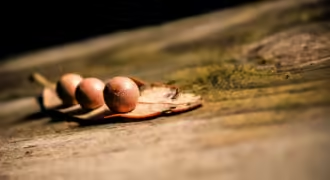The LORD is my shepherd; I shall not want.
Psalm 23
He makes me lie down in green pastures. He leads me beside still waters.
He restores my soul. He leads me in paths of righteousness for his name’s sake.
Even though I walk through the valley of the shadow of death, I will fear no evil, for you are with me; your rod and your staff, they comfort me.
You prepare a table before me in the presence of my enemies; you anoint my head with oil; my cup overflows.
Surely goodness and mercy shall follow me all the days of my life, and I shall dwell in the house of the LORD forever.
Psalm 23 is a very familiar Psalm to all of us. To those who grew up in Christian households, this is one of the first psalms they learned by rote. To others, this was one of the first scripture portions they were introduced to. Psalm 23 is the most common verse you find on wall hanging posters and other paraphernalia in a Christian bookstore. And yet, it is sometimes surprising how something can be so familiar while yet so unexplored.
The Psalm begins with David identifying God as his Shepherd. Through the several verses, he explains the various aspects of walking with God, and it ends with his longing to dwell in the House of the Lord forever. David’s present walk with the Lord leaves him both satisfied and yet wanting more. This is not a dichotomy; it’s akin to how good food both leaves us satisfied and wanting to have it again.
House of the Lord
David lived before the first temple era, and his desire to make a permanent house for the Lord is found in 1 Chronicles 14:1: “Now it came to pass, as David sat in his house, that David said to Nathan the prophet, Lo, I dwell in a house of cedars, but the ark of the covenant of the Lord remaineth under curtains.” David desired to be with his shepherd all the time, and this is further emphasized in Psalm 27:4: “One thing have I desired of the Lord, that will I seek after; that I may dwell in the house of the Lord all the days of my life, to behold the beauty of the Lord, and to inquire in his temple.”
In this passage, “House” and “Temple” are used interchangeably. The temple was constructed later by King Solomon, only to be destroyed by the Babylonians in 586 BC (2 Kings 25:8-9). The second temple was built around 520 BC under the care of Zerubbabel (Ezra 3:8-13), which was again destroyed in AD 70. David’s dream for a House for the Lord did not achieve permanent fruition.
This changed when Jesus, in Matthew 12:6, said the following words: “But I say unto you, That in this place is one greater than the temple.” While God’s dwelling place was once the temple, this changed as Christ dwelt among the people. Christ asks his disciples to abide in him (John 15:4). We are united to Christ in His death and resurrection (Romans 6:5). While David desired to dwell with God in the temple, Christ invites us to dwell in him, i.e. dwell in God. The promise is even more glorious as we not only abide in Christ, but He in us (John 15:4). This is further explained by Paul in Romans 8:9 where he says the Spirit of God lives in us and alternatively, the Spirit of Christ lives in us.
Coram Deo
The Latin phrase “Coram Deo” is deeply rooted in Protestant history. The phrase translates to “before the face of God” or “in the presence of God” in English. John Calvin emphasized the concept of living all of life “Coram Deo”. For Calvin, it meant living one’s entire life consciously in the presence of God, acknowledging God’s sovereignty and authority in every aspect of existence. When believers walk through the valley of the shadow of death (Psalm 23:4), Christ dwells in them and they in Christ. In the deepest and darkest valleys, Christ provides them with green pastures and still waters of care, provision, and rejuvenation. When evil surrounds the believer, Christ communes with them and provides them with a peace that passes understanding (Philippians 4:6-7) and joy. Like David’s dream, we dwell in the House of the Lord forever. With the assurance that the resurrected Christ lives in us today, let’s live our lives Coram Deo.










